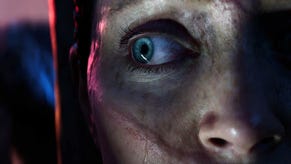BioShock Infinite: This is Hardcore
Ken Levine sets a course for 1999.
I've spent a lot of time trying to picture what the newly unveiled 1999 mode means for BioShock Infinite, but I keep coming back to a scene from an old movie. It's Butch Cassidy and the Sundance Kid - which doesn't really have very much to do with Pinkerton agents, American exceptionalism, or floating cities in the sky - and the scene comes right at the end, just before the closing credits.
You probably know it, actually: Butch and Sundance are trapped in a barn, surrounded by heavily armed soldiers, and they're trying to work out what to do next. Do they run, do they fight or do they just stick around and bicker endearingly? They're stuck in this moment out of all possible moments, driven there by the poor choices you've watched them make over the last few hours. It's the garden of forking paths - and they appear to have just sat on one of the forks.
That, I think, is the kind of thing 1999 mode is meant to evoke, and it does it all without having to call in the Bolivian army. Instead, it works by fiddling with the game's variables, and making the whole experience a little more... rigorous.
If you're thinking this sounds like a standard difficulty setting that just happens to come with its own name and a good press secretary, you're missing the point. In BioShock Infinite's normal mode - the way most people are going to play it - you'll still be able to choose from a range of difficulty levels, boosting or lowering enemies' durability, say, or juggling how often you find health power-ups. 1999 mode has an entirely different agenda: its aim is to genuinely change the way you play the game, and it arose from Irrational creative director Ken Levine's own feelings about the original BioShock - and the feelings of some of the game's fans.
"When we were working on BioShock there were design decisions we made where I think I sort of lost sight of something that was important in our previous games," sighs Levine.
"It didn't really occur to me what was missing until I had an interaction with a fan at a speaking event I did. He came up to me after the event and said, 'I've got a bone to pick with you.' I asked what it was. He said, 'BioShock didn't live up to something I was expecting out of the game: none of my decisions had any permanence. None of my character-based decisions had any permanence.' I thought, 'God, yes, that's a very good point.' When I look at BioShock, I look at all the game systems, and there's a hacking system, a photography system. There's a lot of systems in it, but none of the systems really demand a player sticks to those decisions they make."
The solution? Choices with a little more kick to them. We're not talking about big narrative choices here, like who lives and who dies (it's very hard for any game to go back on those occasions without pulling off a Bobby Ewing) but we are talking about the character stuff that affects your game on a moment-to-moment basis.
"So even in a vanilla BioShock Infinite, there are permanent decisions now," says Levine. "The nostrums that are basically the gene tonics of the first BioShock, those are permanent decisions. The way these work are you can find unstable nostrums in the world, and they give you a choice between one of three powers. You make that decision right there and then and then you stick with that decision.
"The change for 1999 mode is that the decision is not only permanent: if you make certain decisions, it's now mutually exclusive of other decisions. It locks out other stuff." Levine laughs. "You choose to specialise in guns or a particular type of gun, or hacking or whatever it is, you're really going to be compromised on other things: you're not going to be able to be good at them as well. And you're going to have those times in the game where you have a limited resource of the things you're good at.
"You're dynamite with your pistol, but there will be times you don't have ammo for that pistol. You're going to struggle, because you've chosen that specialty, but you don't have the resources for that speciality. You really have to count every bullet and every dollar - that strategizing effect - to ensure you're going to be able to keep going and keep being effective." ("We get out of here alive, we go to Australia.")
"Basically, changes to balance can have some pretty profound effects," continues Levine. "1999 is a different way of thinking about resources, about character decisions, about health and about dying. You'll have to monitor your health much more carefully, and we're being crueller with re-spawning after death. Those are the primary areas where we're making changes. We don't want people thinking, "Oh my god, it's a whole new game." It's not a whole new game. It's a different way to play the game that really harkens back to the kind of game system stuff you'd get back in the 1990s than today."
It's an idea that should lead you down some interesting avenues. Take ammo rationing, for example. Fewer bullets in the world, and combat becomes a bit like a puzzle game: count your rounds, count your enemies, and work out how to make that equation work for you. It's fascinating stuff from a design point of view, then, but Levine's aware that it's not going to be for everyone.
"I think we're accepting in this mode that it's going to be punishing and it's going to be hard," he says. "It's not for the average guy who goes into a game store and picks up Infinite and says, 'Oh, this will be interesting.' It's very much a gamer's mode. In fact, what we might do is bury it under a left, right, left, right, up, down thing, or a keyboard combination on PC.
"We don't want people stumbling into it who aren't ready for it. We want people to read that code on Eurogamer or RPS or whatever - gamer sites - and then say, 'Okay, I'm ready for this.' You're not going to have to complete the campaign on normal first. You'll be able to dive straight into this mode, but it's not something I want everybody to see."
As for the name, it's worth remembering that System Shock 2 came out in 1999 and has been brutally smacking its fans about ever since. That's a reminder, if nothing else, of how tastes in game design have changed over the last decade. "There's a way that games in 2012 are balanced, and I think there are some really good innovations in game design and some really good innovations in game flow and ease of use," admits Levine. "With 1999, to some degree, we're going to say, 'Well, those are great, but we're going to leave those aside.' We want to be thinking, really thinking, about every decision, staring at the screen and knowing, well, this is life and death. This isn't 2012 game design at all."
Is there much of an audience for this kind of thing? Levine's feeling confident. "To make a game that is strictly this kind of game today would be a difficult proposition because tastes have changed broadly," he allows. "But old school gamers haven't changed. I as a gamer haven't changed. I miss this kind of experience. As gamers, we sometimes just want to have that experience where you're really stressing over a simple decision."
And is it nice to have a break from making games for everyone and focusing on what just one specific group of people want, even if it's only for one mode in a huge project like Infinite? "Those multiple audiences are within each of us," he argues. Last night I couldn't sleep so I was playing Bejeweled on my iPhone for about an hour, but right before that I was playing Deus Ex. That's weird, right? How often are those two games played in a row? I think surprisingly often.
"Gamers are so broad in their tastes. So there's a little bit of a voice in me saying, 'Make a game I can just pick up and play', and there's a voice saying, 'Screw that, I want to play something that will beat the crap out of me. I want to play S.T.A.L.K.E.R. I want to re-install X-Com.' This voice is in each of us, and all you need to do is listen to the schizophrenic voices in your head and I think it will give you some guidance about what you should be making." He laughs. "Because you can't make a game for somebody else, you know?"
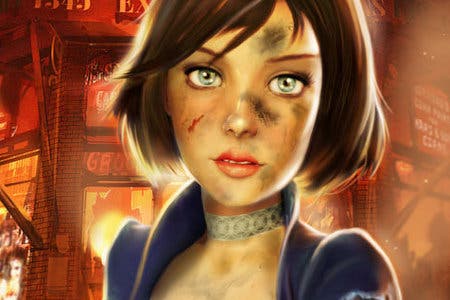





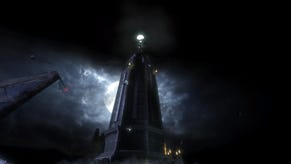

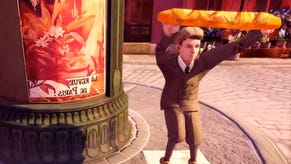


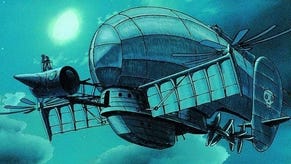
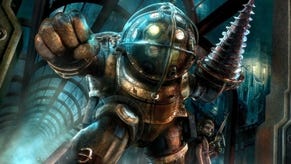





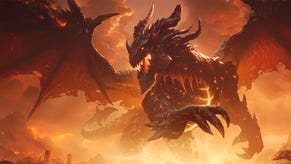
.png?width=291&height=164&fit=crop&quality=80&format=jpg&auto=webp)
